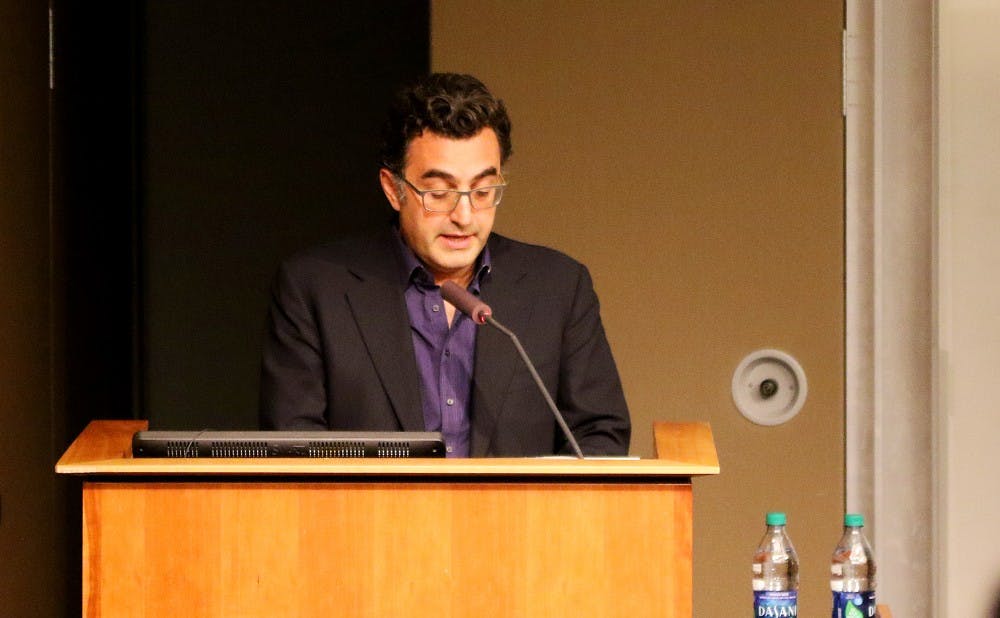Maziar Bahari, an Iranian-Canadian journalist who was imprisoned by the Iranian government for alleged espionage, said Tuesday that he sees a positive place for his home country within the international community.
In a talk that centered around the American-Iranian relationship in the wake of the July nuclear deal, Bahari emphasized the changing conditions within the country. He noted that the Iranian people have gradually become more liberal and supportive of reform, challenging the government as the older generation is either “dying or reforming.”
“Maybe we do not see the manifestations of those challenges on the streets, but in terms of acceptance of others, in terms of embracing Western values such as democracy, human rights, even other subjects that were taboo such as homosexuality or certain religious minorities, they are much more acceptable these days in Iran,” he said. “Many of the hardliners in Iran are simply just stupid.”
Bahari returned to Iran in 2009 to cover the presidential election but was detained amid widespread protests over the result. He then spent 118 days in solitary confinement while being tortured. His memoir “Then They Came for Me” was adapted into the film “Rosewater,” directed by Jon Stewart, in 2014.
Bahari emphasized that the recent nuclear deal was limited to covering nuclear issues. As such, a number of other problems plaguing Iran, such as human rights violations and the government’s general anti-Western sentiment, were not addressed. Bahari also noted that there is a long way to go before relations with Iran are normalized.
Still, Bahari said the beginning of negotiations with the West indicates an opportunity for a shift toward democracy in Iran and freedom for its citizens.
“We have to understand that the nuclear negotiations are not a magic pill that is going to resolve years of mistrust by Iran with the rest of the world,” Bahari said. “But it is a way to prevent another war in the Middle East. It is a way for the peaceful development of events in Iran, and it prevents militarization of the country.”
He also noted that the younger generation is much more vocal than its predecessors, thanks in large part to social media.
“What we are seeing in Iran is a 20th century dictatorship now having to fight its people on Facebook, Twitter and Instagram,” he said. “The regime uses the same old methods of repression in the digital age, but it cannot work forever.”
Despite the nuclear agreement and shifting social norms, the government continues to impede change. He noted that the upcoming parliamentary elections in March will present an important opportunity for progress.
“My guess is that if [the non-hardline candidates] are allowed to run, we will see a majority reformist parliament,” Bahari said.
Bringing Bahari to campus was a student-coordinated effort led by the Duke International Relations Association.
“We felt that with the nuclear deal, he would have an incredibly timely, relevant and particularly unique perspective,” said junior Ilana Weisman, a member of the organization.
Students, faculty and community members filled Schiciano Auditorium for Bahari’s talk. Freshman Daniel Allred said he came after learning about Bahari in “Rosewater."
“I wanted to see how far he had come since then,” he said. “It was a great talk.”
Get The Chronicle straight to your inbox
Signup for our weekly newsletter. Cancel at any time.

